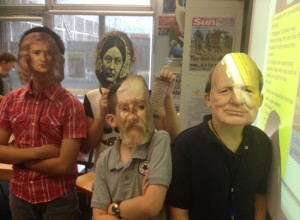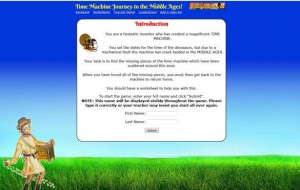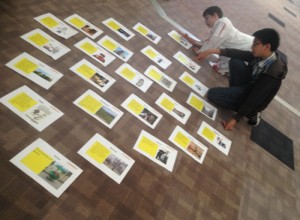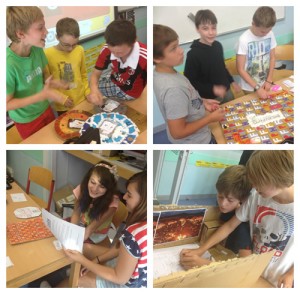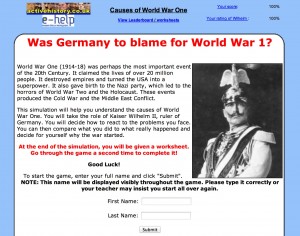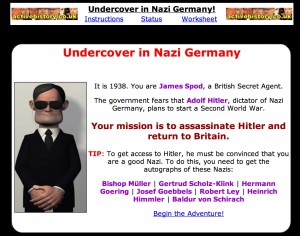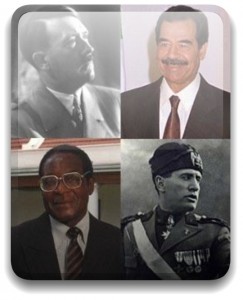It’s great to start the new school year with some suitably engaging activities. With that in mind I thought I’d share with your the resources I’ll be using with my teaching groups in case you want to make use of them yourself!
There are plenty of syllabus changes taking place in different educational systems at the moment, and I’m looking forward to using these as an opportunity to continue developing further fresh and effective resources for the classroom over the next twelve months.
As always, if you have any specific requests or recommendations of topics that you’d like me to cover or resources you’d like me to produce then please let me know – if you look at the updates page you’ll see that the site has been updated several times a week for the past ten years and I’m always keen to develop ActiveHistory to meet the needs of its users!
Russ
Year 7: “What is History?”
This unit looks at the who, when, where and why of History through a series of activities including “Murder Mystery” element and a “Balloon Debate”.
Year 7: Time Machine Journey to the Middle Ages
If you prefer to plunge straight into a Medieval study, this interactive adventure was updated massively last year with new locations and video clips. The students love it and it’s a great way to engage them with the subject from the outset.
Year 7: Origins of our Surnames Project
In this activity, students research the origins of surnames of people in the school.
They then narrow this down to the names which originate from occupations, and present each of these in a PowerPoint slide with an accompanying image. These are then printed off and arranged through discussion into a ‘Diamond9’ diagram with the most ‘high status’ jobs towards the top, and the ‘low status’ jobs towards the bottom. This adds an interesting dimension to the investigation about “Was Life Good or Bad in the Middle Ages?”.
Year 8: Church Boardgames
This four-hour unit helps students to understand why religion was so important in the Middle Ages. This leads neatly into a study of the Cathars and the Reformation. Students design games, play the various games that result, then peer-assess the work.
Year 9: Who is your Historical hero?
This is a great activity for any year group: I trialled it with Year 9 last term, but it went so well that I plan to run it with other year groups too. I was particularly keen to get students to: consider carefully how we can measure ‘historical significance’, assess the qualities, talents and achievements that could be described as ‘heroic’ – and use the study to reflect more deeply on what constitutes an inspirational life in terms of values, behaviour and ambitions.
Year 10: Interactive Simulation – You are the Kaiser!
I start my Modern World History studies with this computer simulation. Students take the role of Kaiser Wilhelm II, ruler of Germany. They decide how to react to the problems they face. Students can then compare what they did to what really happened and decide for themselves why the war started.
Year 11: Undercover in Nazi Germany
My students are about to write a piece of coursework on Nazi Germany. For initial in-depth coverage of the Nazi regime, they will be playing this simulation where they take the role of an undercover agent with a mission to assassinate Hitler. Completing the mission requires answering a series of questions and taking a series of decisions based on the knowledge and understanding they pick up along the way.
Year 12: Origins of Warfare research and presentation project
This short unit is designed to help students compare and contrast a wide range of 20th Century conflicts. Students will engage in individual research, paired presentations and a teacher-led session on the historiography of war. They will then use their findings to produce a detailed essay.
Year 13: Dictators research and presentation project
This research project can take place at any point during the course. It is a great way to get students producing some personal research and engaging in some high-order thinking skills. The outcome of the unit is an in-depth essay on the subject of “Analyse the Methods and Conditions by which 20th Century Dictators Rose to Power”.
